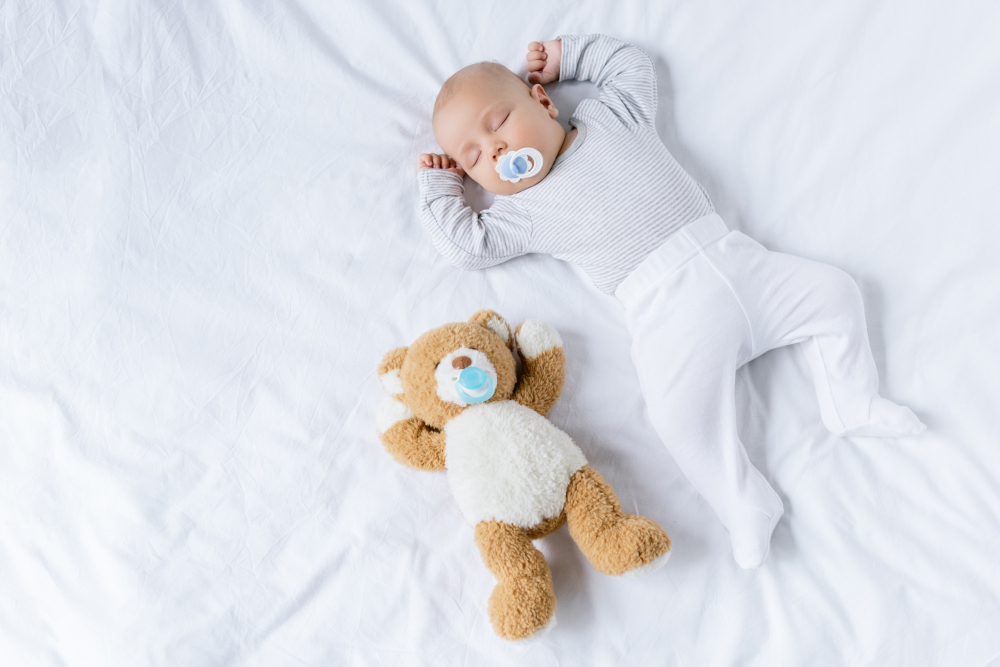The purpose of a pacifier is right in the name. It pacifies, or calms down, an unhappy or complaining baby. That makes this inexpensive little tool quite handy for new parents, especially those who may have a colicky baby. However, many breastfeeding moms worry that giving baby a pacifier might lead to breastfeeding challenges or other health problem. What does science say?
The Big Picture
Sucking is an instinct for newborns, but it takes time to perfect it. Babies and moms need a few weeks of practice to get the hang of best latching positions and ideal sucking techniques. Babies use a different sucking technique when using a pacifier or a bottle than when nursing at the breast, which can confuse babies as they learn the ropes. Introducing a pacifier or bottle during the early weeks of breastfeeding can cause some bad nursing habits or nursing frustrations for baby. For this reason, the American Academy of Pediatrics (AAP) recommends waiting until baby is one month or older before introducing a pacifier to make sure baby has mastered breastfeeding.
Pacifier Pros
We don’t need a study to know that pacifiers give non-breastfeeding caregivers a tool for soothing newborns while mom takes a break. They also make travel, especially on planes and other public transportation, much more pleasant. You may be surprised to learn that there are science-backed benefits of thoughtful pacifier use, too.
- Giving baby a pacifier at naptime and/or bedtime may reduce the risk of SIDS, according to the AAP.
- A 2011 study of premature infants found that those who sucked a pacifier while listening to lullabies transitioned more successfully to oral feeding.
- A 2016 study of pacifier-use after lactation is established did not shorten the duration of breastfeeding or reduce breast milk production.
- A 2015 study found that pacifier-use can provide some relief for babies experiencing pain or discomfort related to colic, vaccinations, injury, medical procedures, or sickness.
Pacifier Cons
As with most choices we make as parents, whether to use a pacifier or not is complicated. Despite all the perks, they can be a breeding ground for germs. Weaning children from their binkies can be a huge emotional challenge if they’re very attached. Scientists have also found some potential medical problems related to pacifier use.
- According to the AAP, introducing a pacifier too early can contribute to nipple confusion and lead to difficulties in latching. These issues can, in turn, create more serious problems for mom, like mastitis, and baby, like weight loss.
- A 2013 study revealed that pacifier use, especially after six months, may lead to Acute Otitis Media (AOM), or ear infections.
- A 2018 scientific review found evidence that pacifier sucking, especially long-term, can lead to orthodontic problems, most notably an anterior open bite and posterior crossbite.
Use pacifiers safely and thoughtfully for maximum benefit and minimum harm.
If you choose to use a pacifier, consider waiting until you and baby have gotten comfortable with your nursing routines. Keep the pacifier sanitized to avoid thrush and other bacterial infections, and choose a one-piece pacifier that is the proper size for your child to prevent the possibility of choking.
